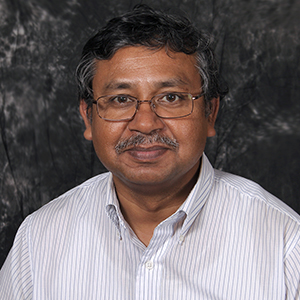
Assistant Professor
Research Areas
Human papillomaviruses
Research Interests
Five percent of all human cancers are caused by infections with high-risk human papillomaviruses. Advanced cervical cancers do not respond well to existing chemo-radiation therapies. Despite the high efficacy of prophylactic HPV vaccines, a great majority of eligible young people domestically and globally are not getting vaccinated. Furthermore, these vaccines have no therapeutic efficacy against existing lesions. Safe, effective and inexpensive therapeutic agents are urgently needed. Since 2001, I have been investigating the functions of HPV E6 and E7 oncogenes in the differentiating epithelium in which the viral genome amplifies. Our research explores three major areas: (a) molecular characterization of host genes and proteins that regulate the amplification of HPV DNA during squamous epithelial differentiation; (b) validation of a Patient-Derived Xenograft (PDX) mouse model of cervical cancers; and (c) establishment of novel organoidraft cultures of primary cervical cancers as well as PDX tumor tissues as platforms for expediting antiviral drug screening and developing tools for personalized medicine.
Our studies revealed that HPV-18 E6 and E7 proteins induce robust changes in the transcription of a large number of host cell genes that regulate cell cycle, apoptosis, DNA damage response, and immune andi nflammatory pathways in experimental organotypic epithelial raft cultures of primary human keratinocytes. We deciphered how HPV oncogenes interfere with host keratinocyte homeostasis to enable S-phase re-entry in post-mitotic, differentiated cells. We elucidated the mechanism by which the virus promotes the transition from S-phase into a protracted G2-phase, enabling viral DNA amplification. Currently, we are evaluating small molecule inhibitors of S-phase progression, mTOR and DNA damage repair pathways on the productive amplification of HPV-18 DNA and the underlying mechanisms. Our goal is to validate the Tumor Organoid Raft Cultures and to combine this novel model with PDX models for rapid and economical preclinical screening of a multitude of inhibitors, singly and in combination.
L Kang, C Yao, A Khodadadi-Jamayran, W Xu, R Zhang, N Banerjee, C Chang, L Chow, T Townes, Kejin Hu*(2016) The universal 3D3 antibody of human PODXL is pluripotent cytotoxic, and identifies a residua lpopulation after extended differentiation of pluripotent stemcells. Stem Cells Dev. 25(7):556-568.
Collawn SS, Mobley JA, Banerjee NS, Chow LT(2016). Conditioned Media From Adipose-Derived Stromal Cells Accelerates Healing in 3-Dimensional Skin Cultures. Ann Plast Surg., Apr;76(4):446-52.
Education
Graduate School
Ph.D., Bose Institute, University of Calcutta
Postdoctoral Fellowship
Bose Institute, University of Calcutta
University of Alabama at Birmingham
Contact
Office Location
Kaul Human Genetics Building
Building Room 520
720 20th Street South
Birmingham, AL 35294
Phone
(205) 975-8304
Email
banerjee@uab.edu